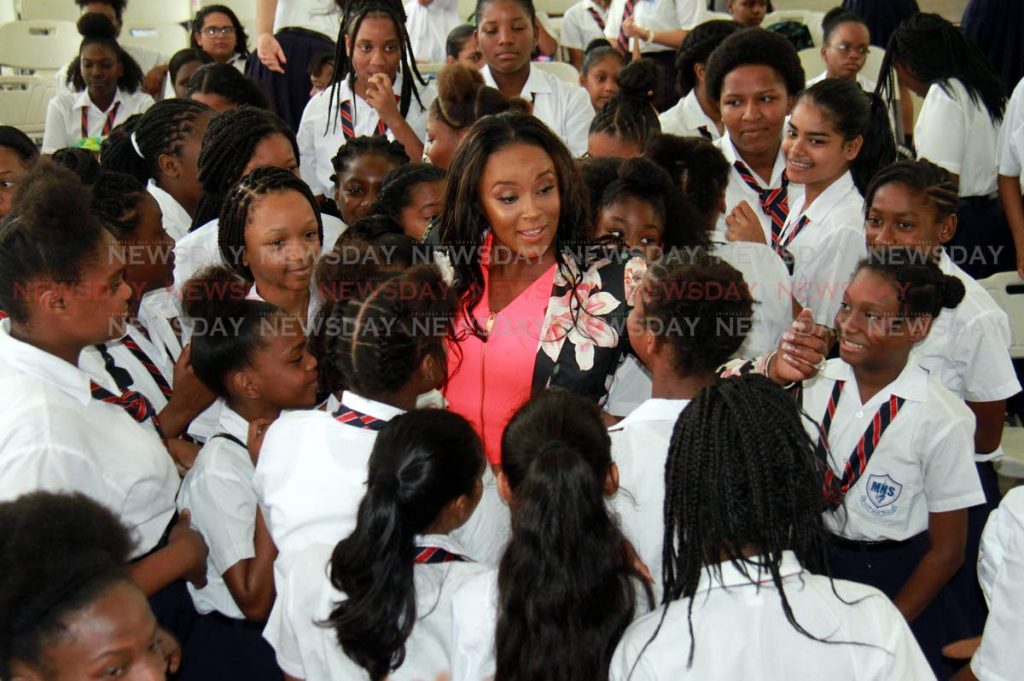Reclaiming rights of girls

THE EDITOR: The world commemorated the International Day of the Girl on Tuesday. The Caribbean Women in Leadership (CIWiL) takes this opportunity to highlight the many victories and reflect on the challenges faced by girls in the Caribbean.
As a regional organisation committed to advancing women’s transformational leadership and increasing the number of women in leadership and decision-making in political and civic life, the actualisation of the rights and safety of girls remain a focal mandate of our work and advocacy.
Girls in the Caribbean, through their dreams, dedicated actions and commitment to making the world a better place, have taken leaps which have contributed significantly to the development of their homes, communities and countries.
Girls of all ages have used their skills and platforms to advocate on social issues. Noteworthy regional examples include Maria Mashall of Barbados, who at 13 years old is an active environmentalist, bringing mobilisation through her motto of “Reduce, reuse, recycle and repair;” 12-year-old Trinidadian-born and Guyanese-raised Annalise Azeez, who uses her art form of rap to encourage girls to overcome life’s barriers and achieve anything they desire; and 19-year-old Toshaunae Norris of Jamaica, who is a writer on issues relating to youth, gender and development.
Academically, girls in the Caribbean have been high performers at exams such as the Caribbean Secondary Education Certificate (CSEC) examination. The Caribbean Examinations Council (CXC) 2021 report revealed that the regional award for the most outstanding performance overall at the CSEC examinations for that year was earned by a young woman, Zaynab Shaffie of Queen’s College, Guyana. She undertook 20 subjects, achieving Grade I in 18 subjects and Grade II in two subjects.
The report revealed that girls also dominated four out of the five award categories, namely the most outstanding performance in humanities, sciences, technical and vocational studies, and creative and expressive art.
Though girls have experienced countless victories, it is also the reality that they have faced significant challenges and barriers to their full and equal participation in all spheres of life.
One particular area of inequality is in relation to access to jobs and wages. Though girls perform exceptionally at their academics through secondary and tertiary levels, when they enter into the world of work, it is often the reality that they earn less than their male counterparts. According to the Global Gender Gap, throughout Latin America and the Caribbean, for every dollar a man makes, a woman makes 72 cents.
This inequality is also seen in levels of employment. According to the International Labour Organization (ILO), during the covid19 pandemic, in 2020, approximately 1.1 million women became unemployed in Latin America and the Caribbean. Economic sectors in the region with a higher presence of women such as the service and commerce industries experienced significant losses and closure, affecting the long-standing careers and main financial source for countless women.
Regrettably, the safety of girls continues to be of alarming concern in the Caribbean. This encompasses all forms of violence and harassment, such as physical, psychological and sexual violence. Spaces such as streets, schools, communities and homes no longer feel safe for many girls.
These injustices must end. It is the right of every human being to be free and equal, without discrimination and to live in safety.
As almost all countries have endorsed the Convention on the Elimination of All Forms of Discrimination Against Women (CEDAW), described as the women’s international bill of rights, it is of dire need that all countries in the Caribbean examine the status of girls and evaluate the effectiveness of policies and laws that protect them.
Consistent with the theme for International Day of the Girl 2022, "Our time is now – our rights, our future," we join in supporting the triumphs of all girls, and call on all private and public entities to act today in upholding the rights and protection of all girls.
CARIBBEAN WOMEN
IN LEADERSHIP
via e-mail


Comments
"Reclaiming rights of girls"